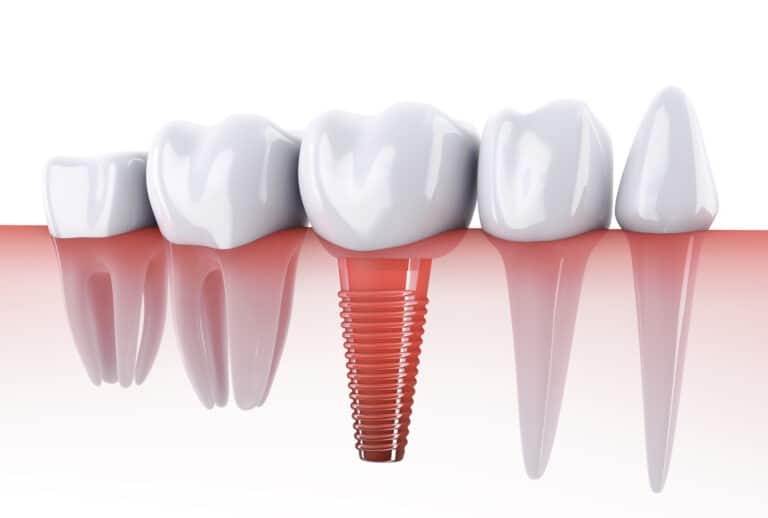Dental implants are an incredible solution for replacing missing teeth, offering a permanent option that mimics the look, feel, and function of natural teeth. One common question patients ask is, “How long do dental implants last?” The short answer: with proper care, they can last a lifetime. However, several factors play a role in their longevity, and understanding these can help you get the most out of your dental implants.
Here’s what you need to know about how long dental implants can last and what you can do to maximize their durability.
The Structure of a Dental Implant
To fully understand how long dental implants last, it’s helpful to know the basic components of an implant. A dental implant consists of three main parts:
- The Implant Post: This is a titanium screw that is surgically inserted into the jawbone and replaces the tooth root. It is biocompatible, meaning it fuses with the bone in a process called osseointegration.
- The Abutment: This is a piece that attaches the crown to the implant post, securing everything in place.
- The Crown: The visible part of the implant that looks and functions like a natural tooth.
Longevity of the Implant Post
The titanium implant post is designed to last a lifetime. Once it successfully integrates with the jawbone, it becomes a permanent part of your mouth. Research shows that the success rate for dental implants is around 95%, and many patients enjoy their implants for decades without issues. However, the longevity of the implant depends heavily on factors such as oral hygiene, overall health, and lifestyle habits.
Lifespan of the Crown
While the implant post can last a lifetime, the crown (the visible part) may need to be replaced after 10-15 years due to normal wear and tear. This timeframe can vary depending on how well you take care of your implant and whether you engage in activities that may cause extra wear on the crown, such as grinding your teeth.
Factors That Impact Implant Longevity
- Oral Hygiene: Proper oral hygiene is essential for maintaining your dental implant. While the implant itself cannot decay, the surrounding gum tissue and bone need to be healthy to support the implant. Brushing twice a day, flossing, and regular dental cleanings help prevent infections like peri-implantitis, which can lead to implant failure.
- Lifestyle Habits: Habits such as smoking or using tobacco products can significantly reduce the lifespan of your implant. Smoking impairs healing and increases the risk of infection, both of which can lead to implant complications.
- Diet: Avoiding hard foods like ice or hard candies that can damage the crown is important. A balanced diet that supports bone health, rich in calcium and vitamin D, can help maintain the strength of the jawbone around the implant.
- Regular Check-Ups: Routine visits to the dentist are crucial. Regular check-ups allow your dentist to monitor the health of your implant and ensure that any potential problems, like gum disease, are caught early.
Dental Implants in Oak Park, IL
In most cases, dental implants can last a lifetime with the right care. The titanium post is incredibly durable, and while the crown may eventually need to be replaced, this is a minor issue compared to the long-lasting benefits of the implant. Dr. Thomas Wegner in Oak Park, IL, can provide you with the guidance and care needed to ensure your dental implants last as long as possible. If you’re considering dental implants or want to learn more about how to care for them, don’t hesitate to reach out to our office!

